Fossil Fuel Subsidy Reform: Big at the Climate Talks and in the Agreement?
World leaders hailed that the climate change agreement, agreed on Saturday 12 December, was important and significant in terms of setting the framework for government action in the coming years. In this blog, the Global Subsidies Initiative (GSI) examines both the text of the agreement as well as the events and activities that took place throughout COP21 in Paris with regards to fossil fuel subsidy reform and the phased removal of around US$600 billion of government subsidies to fossil fuels. In summary, there was much momentum on the side-lines of the negotiating process. The content of the agreement itself, from the perspective of moving the issue of fossil fuel subsidy reform, is also a very positive step in the right direction for setting the framework and rules of the game on climate action.
In the agreement
The agreement itself includes no mention of fossil fuels directly, nor mention of subsidies, nor the word energy. Yet there are hooks and processes to encourage early pre-2020 action and to encourage countries towards the removal of fossil fuel subsidies. GSI analysis finds that the phased removal of these subsides could contribute an average of 11% in national emissions reductions across 20 countries or between 6-10% reductions in global emissions. Each article of the agreement is looked at in turn at the end of this blog, but it should be noted here that the most promising action comes from the inclusion by countries of the issue within their Nationally Determined Contributions (NDCs). The GSI identified 13 specific mentions of "fossil fuel" or "energy sector reform" as part of national contributions, and 39 mentions of "fiscal measures" in general, representing 67 countries (i.e. removal of fossil fuel subsidies (13 NDCs), implementation of clean energy subsidies (25) and carbon pricing (13). Within the Paris Agreement, sections on transparency (Article 13), and capacity building (Article 11) hold potential—indeed the GSI has been calling for a Technical Experts Meeting in relation to fossil fuel subsidy reform since February 2015 and transparency on the issue for years with a global database and through its work with the Fossil Fuel Subsidy Reform Communiqué. The challenge is that fossil fuel subsidy reform often falls between the cracks with no institutional home that can cover transparency, economic, social, environmental and climate change concerns—in other words sustainable development. New GSI research on the inclusion of FFSR within the NDCs can be found here.
Fossil fuel subsidies, which are costing governments around US$600 billion every year, and driving the world towards high carbon development, will require greater attention and resources to deliver pre-2020 or early action on the ground. The broader decision from COP21 does include reference to "domestic policies and carbon pricing" in relation to non-party stakeholders (rather than governments) but this falls outside of the Paris Agreement itself. Specific inclusion of the issue of fossil fuel subsidy reform within the agreement was a missed opportunity.
During the side events
The busiest side event on fossil fuel subsidy reform was held in week two of the conference on 7th December. The event was entitled "Fossil Fuel Subsidies and Climate Change: National action and international phase out" and organized by the Friends of Fossil Fuel Subsidy Reform (FFFSR) and GSI, with financial support by Switzerland. The speakers included several prominent ministers from FFFSR member countries such as Switzerland, Sweden and Norway, Fatih Birol, Executive Director of the IEA, Felipe Calderón, Chair of the Global Commission on the Economy and Climate, New Climate Economy; Scott Vaughan, CEO and President of IISD. Participants called for an early end to fossil fuel subsidies, and investments by governments into renewable energy, health and education.

Doris Leuthard, Head, Federal Department of Environment, Transport, Energy and Communications, Switzerland, Switzerland, said that successfully addressing FFS reform is “more like a marathon than a sprint,” requiring determination and perseverance.
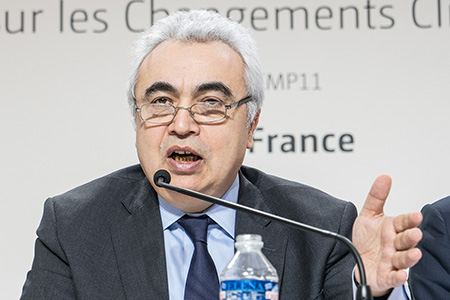
Fatih Birol, Executive Director, International Energy Agency (IEA), referred to the “absurd situation” of the opposite forces at work in the global energy economy, in which the carbon price in Europe is approximately US$10, yet incentives for the use of fossil fuels globally, in the form of subsidies, equate to an average of US$110 per tonne of carbon.
Risto Piipponen, Ambassador to France, Finland, indicated that the socio-economic benefits of subsidies should be considered when looking at reform.
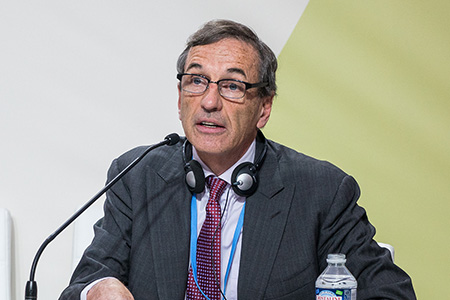
Scott Vaughan, President and CEO, IISD, noted that subsidies encourage greater consumption of fossil fuels by artificially deflating their cost.
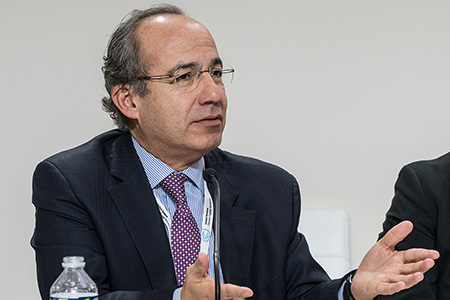
Felipe Calderón, Chair, Global Commission on Economy and Climate, suggested that it is wealthier households with greater energy use who get the most benefit from fossil fuel subsidies, underlining as well that reforms should be implemented in a way that benefits low-income households.
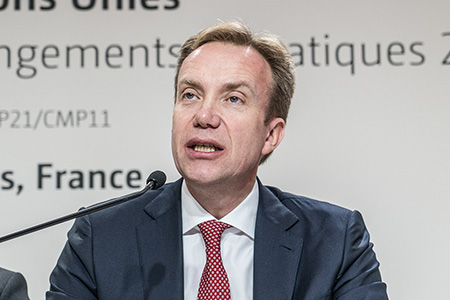
Reporting on the “huge budget deficits” attributable to fossil fuel subsidies in many countries, Børge Brende, Minister of Foreign Affairs, Norway, posed the question “how can we afford not to reform fossil fuel subsidies?”.
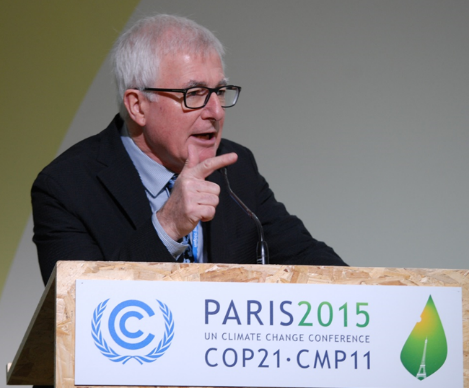
Tim Groser, Minister for International Climate Change Negotiations, New Zealand referred to the positive momentum from the Fossil Fuel Subsidy Reform Communiqué and the need to implement a global carbon price within the next two decades, lamenting that the continued subsidization of fossil fuels was the “height of policy incoherence”.
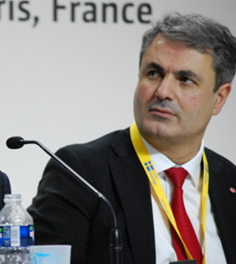
Ibrahim Baylan, Minister for Energy, Sweden explained that while Sweden’s domestic greenhouse gas (GHG) emissions have declined 24% since 1990, emissions from consumption of goods and international transport have increased. He suggested carbon pricing as an effective method to tackle this international dimension of climate change.
Coverage of the event from IISD's Reporting Services can be found here.
The poster from the event can be found here.
The video from the event can be found here.
Throughout the week the GSI counted an additional 11 side events, focusing specifically on the issue of fossil fuel subsidy reform. This represents a significant increase from CoP 20 in Lima. Beyond this, many more people were talking, learning and exchanging practical advice on fossil fuel subsidies and their reform.
30th November Leaders Day
World leaders including Prime Ministers from the Friends of Fossil Fuel Subsidy Reform presented an international communiqué to the head of UNFCCC, Christiana Figueres, Executive Secretary of the UNFCCC. Pictures and blog from the event can be found here.
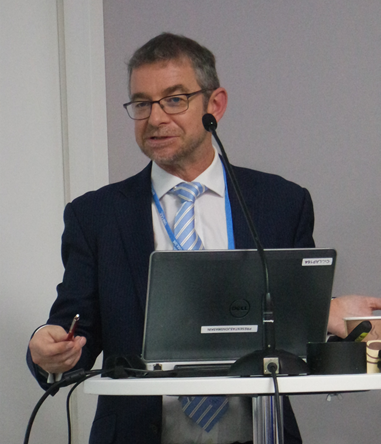
1st December: Peter Wooders, Group Director of Energy at IISD, moderated a side event organized by the GSI and Bellona, “A World without Fossil Fuel Subsidies: the need for a level playing field”. High-level speakers from the Norway’s Climate and Environment Ministry, the Stockholm Environment Institute (SEI), Bellona, the Organisation for Economic Co-operation and Development (OECD) and IISD Associate Aaron Cosbey answered two questions: (i) how much do we know about producer subsidies and their impacts? And (ii) how can an informed and inclusive debate—leading to reform where needed—be held in countries? In an illuminating analysis of the US context, Michael Lazarus of SEI noted both how new oil production had the greatest lock-in potential and, when oil prices were low, it was subsidies which had the greatest impact on "go/no-go" investment decisions. Jehan Sauvage of OECD showed by example how wide-ranging and varied fossil fuel subsidies are within the OECD and emerging economies. Aaron Cosbey analyzed subsidies using an industrial policy framework, concluding that they perform very poorly against criteria of success. The session concluded that robust and transparent analysis remains paramount and debate will remain uncertain and contentious—but that the debate is an essential part of the climate change discussion in both developed and developing countries.

3rd December: Peter Wooders spoke at a closed door event organized by SEI at the Bellona Pavilion entitled "From theory to practice: Advancing supply-side climate action". At the Nordic Pavilion Hans Olav Ibrekk, Policy Director, Section for Energy, Ministry of Foreign Affairs, Norway; Laura Merrill, Senior Researcher, GSI; Outi Leskelä, Senior Officer, the Nordic Council of Ministers (NCM); and Erinc Yelden, Professor of Economics, Bilkent University, Ankara, Turkey; spoke at a side event organized jointly by the GSI and NCM. The event was entitled "Tackling Fossil Fuel Subsidies and Climate Change" and aimed to discuss the next steps for fossil fuel subsidy reform, including the findings from a recent Nordic Council of Ministers research report.
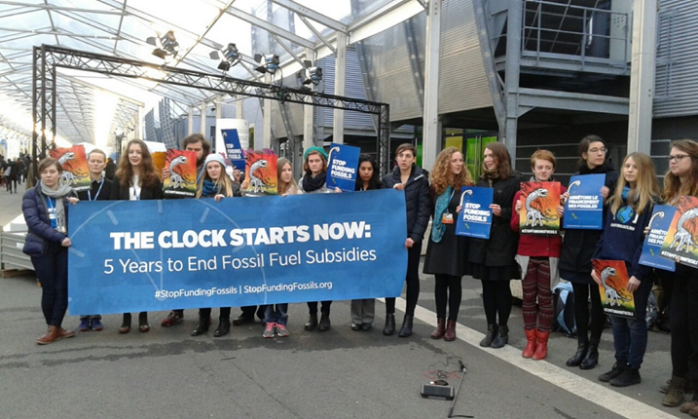
4th December: Another busy day started early with Oil Change International (OCI) convening a call for action to delegates near the entrance to the negotiations. As part of the "Stop Funding Fossils" campaign protestors called for five years to end fossil fuel subsidies. Later in the German Pavilion, GIZ, the International Monetary Fund (IMF) and the United Nations Environment Programme (UNEP) hosted an event entitled "Fiscal policies for a low carbon and inclusive green economy: the role of fossil fuel subsidy reform". Speakers included Ian Parry, IMF; Andrea Meza, Costa Rica; and Laura Merrill, Senior Researcher, GSI, who also contributed a paper towards this issue via the Green Fiscal Policy Network. On the same day, Oil Change International(OCI) and CAN International organized a large side event entitled "The Phase Out of Fossil Fuel Subsidies and a Paris Climate Deal" with many participants. The event was chaired by Stephen Kretzmann, Executive Director and Founder, OCI, and speakers included: Shelagh Whitley, Research fellow, ODI; Maeve McLynn, Climate and Development Policy Coordinator, CAN Europe; Anthony Hobley, CEO, Carbon Tracker Initiative; and Peter Erickson, Senior Scientist, SEI.
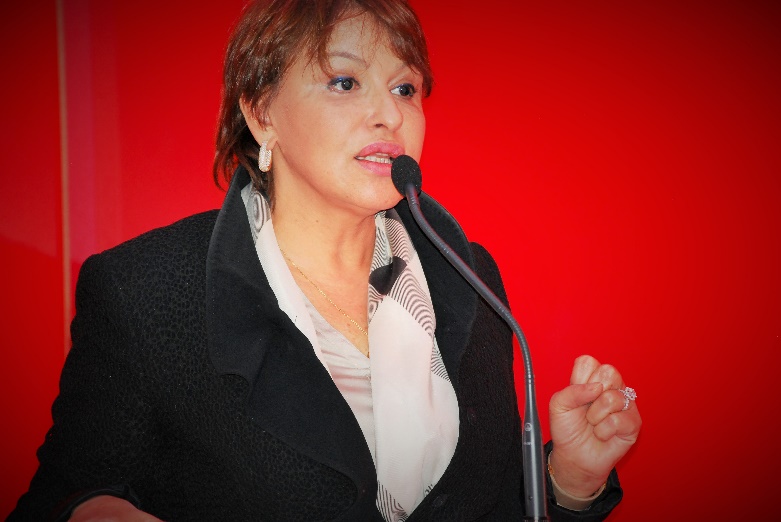
5th of December: The Morocco pavilion hosted an event on fossil fuel subsidies supported by GIZ and the GSI. HE Hakima El Haite, Delegate Minister in Charge of Environment, Morocco, spoke alongside Frédéric Gagnon-Lebrun, IISD, and Laura Merrill, GSI, about how Morocco has carefully reformed subsidies whilst at the same time expanding investment into renewable energy through ambitious targets and to people through the development of a national safety net. The side event covered Morocco’s ground breaking inclusion of fossil fuel subsidy reform within its ambitious NDC based on modelling from the GSI-IF model.
8th December: An event in the pavilion of the OECD, based on GSI research on subsidies in Eastern European countries and the OECD Inventory of Support Measures for Fossil Fuels. The event was entitled "Energy subsidies in the EU’s Eastern Partnership Countries". Presenters included Tim Breese, New Zealand; Kumi Kitamori, Environment Directorate, OECD; Kyryl Tomlyak, Advisor, Ukraine; Ronald Steenblik, Trade and Agriculture Directorate, OECD; and Daniel Stepanyan, Ministry of Energy and Natural Resources of the Republic of Armenia.
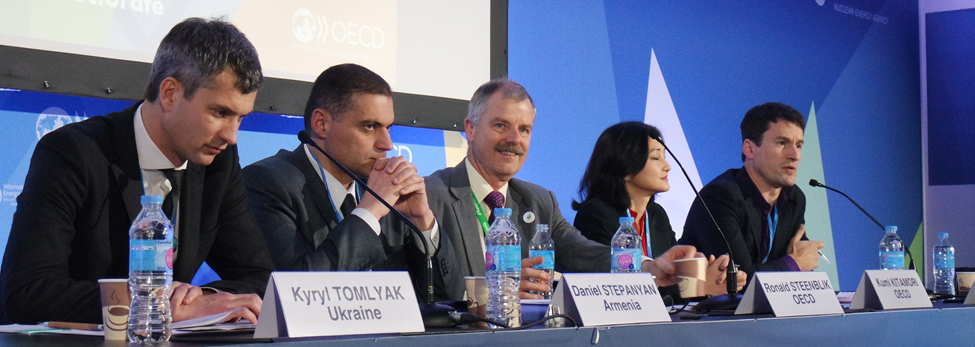
10th December: An event in the EU pavilion on "Fossil Fuel Subsidies; the Barrier to Stronger Climate Action" organized by GSI and CAN Europe. Speakers included: Dr Arunabha Ghosh, CEO of Council on Energy Environment and Water of India; Laura Merrill, Senior Researcher, GSI; Anja Kollmuss, climate policy coordinator, CAN Europe; Jehan Sauvage, OECD; Wendel Trio, Director, CAN Europe and Jeremy Leggett founder of Solarcentury and SolarAid, and chairman of Carbon Tracker.
In total, COP21 saw a twelve fold increase in the number of events linked to the issue, with huge and notable momentum behind the international Communiqué on fossil fuel subsidy reform, backed by 40 countries and dozens of organizations and businesses.
In the table below, an overview is provided of how the issue is captured within the framework itself. To this end, there is cause for optimism, although the task at hand should by no means be underestimated.
How is fossil fuel subsidy reform covered within the new Paris Climate Agreement?

For more information about fossil fuel subsidy reform and climate change, please do not hesitate to contact Laura Merrill at lmerrill@iisd.org.
All photos in this blog are credited to IISD's Reporting Services.
